Bed bugs can lurk in the tiniest hiding places and quickly form vast colonies. Acting fast after spotting any signs of their presence is essential to prevent a full-blown infestation. If you don’t want the expense of hiring an exterminator, bed bug powder can be an effective DIY solution. In this comprehensive guide, we’ll review the best bed bug powders of 2025 to help you make an informed decision.
Quick Picks: Best Bed Bug Powders of 2025

Editor’s Choice

People’s Choice

Best Budget
Why Use Bed Bug Powder?
Bed bugs are a growing problem for homeowners and renters alike. The best way to get rid of them is by using insecticide dust that can be applied in cracks and crevices where these pests hide. Bed bug powders work by sticking to the bug’s exoskeleton, absorbing moisture, and causing them to dehydrate and die. Most quality powders are formulated to be safe for use around humans and pets while being lethal to bed bugs.
Top 7 Best Bed Bug Powders of 2025 Reviewed
Bed Bug Powder Comparison: At-a-Glance
| Product | Active Ingredient | Killing Mechanism | Application Method | Duration of Effect | Child/Pet Safety | Price Range | Best For |
|---|---|---|---|---|---|---|---|
| Ortho Home Defense Max | 0.05% Deltamethrin | Chemical (attacks nervous system) | Puffer applicator | Up to 4 weeks | Moderate (keep away from direct contact) | $$$ | Fast-acting treatment, severe infestations |
| JT Eaton Bedbug Powder | 85% Silicon Dioxide (Diatomaceous Earth) | Physical (dehydration) | Puffer bottle | Indefinite (if dry) | High (natural ingredient) | $$ | Family homes, ongoing prevention |
| Safer Diatomaceous Earth | 85% Silicon Dioxide (Diatomaceous Earth) | Physical (dehydration) | Resealable bag, requires separate applicator | Months (if dry) | High (natural ingredient) | $ | Eco-conscious consumers, sensitive environments |
| HARRIS Bed Bug Killer | 0.5% Malic Acid, 0.5% 2-Phenylethyl propionate | Chemical | Puffer tip and brush | Several months | Moderate | $$ | Hard-to-reach areas, precision application |
| CimeXa Insecticide Dust | 92.1% Silicon Dioxide | Physical (dehydration) | Requires separate applicator | Up to 6 months | Moderate (requires protective gear) | $ | Budget-conscious, resistant bed bug strains |
| Hot Shot Bed Bug Powder | 85% Silicon Dioxide | Physical (dehydration) | Shaker top container | Several months (if dry) | Moderate | $ | Spot treatments, wall voids, carpet edges |
| Bayer Tempo 1% Dust | 1% Cyfluthrin | Chemical (neurotoxin) | Mixed with water, spray application | Up to 90 days | Low (strong chemical) | $$$ | Commercial properties, severe infestations |
Note: Price ranges are relative ($=budget-friendly, $$$=premium). Safety ratings assume proper application according to manufacturer instructions. Always read and follow label directions carefully.
We’ve carefully reviewed the top bed bug powder products on the market, considering effectiveness, safety, ease of use, and value for money. Here are our top 7 picks for 2025: Our selection showcases a range of options to suit various needs, from natural formulations to powerful insecticides. Whether you’re dealing with a minor infestation or seeking preventative measures, these products stand out for their performance and user-friendly application. Additionally, for those looking to complement their treatment, don’t miss our recommendations for the best bed bug sprays 2025, which provide an effective one-two punch against these pesky invaders.
Ortho Home Defense Max Bed Bug Killer
Editor's ChoiceHow Does It Work
How to Use
- Create a perimeter around your bed on all four corners and both sides of the bed frame.
- Sprinkle evenly at a rate of approximately 0.05 to 0.06 pounds per 1,000 sq. ft. of surface area.
- Apply to cracks, crevices, and other areas where bed bugs may hide.
- Reapply every four weeks or as needed for continued protection.
- Effectively prevents and eliminates bed bug infestations
- Easy to use with convenient applicator
- Targets both eggs and larvae
- Provides long-lasting control for up to four weeks
- May stain fabrics if direct contact occurs
- Some users may prefer a higher concentration of active ingredient
JT Eaton Bedbug and Crawling Insect Powder
People's ChoiceHow Does It Work
How to Use
- Shake well before using
- Remove cap and point away from face while pressing the actuator
- Release powder in desired locations, focusing on cracks, crevices, and areas where bed bugs hide
- Apply directly to furniture, carpeting, flooring, and other areas per label instructions
- Only one treatment is required as long as the surface remains dry
- Kills bed bugs on contact without harsh chemicals
- Safe for use around family members
- Effective with a single application when properly applied
- No foul odor unlike most other insecticides
- Must be frequently reapplied in high-traffic areas for best results
- Not suitable for direct application on pets or their bedding
Is this product safe for me and my family?
Yes! The active ingredient, Silicon Dioxide (from Diatomaceous Earth), absorbs fluids from bugs leaving them to dehydrate. This powder is safe and leaves no harmful residue. It’s safe for use around kids and pets, but should not be applied directly on animals or their bedding, as they can lick off powders and potentially develop health issues.
Safer Diatomaceous Earth
How Does It Work
How to Use
- Use an applicator to spread along cracks, furniture, window seals, and mattress seams
- Apply behind home appliances and in door jams
- Safely remove electrical connections and apply behind outlets and switches
- Treat bedding and mattresses with a fine layer
- Apply inside bedroom furniture and on carpeting
- Reapply if the powder becomes wet
- All-natural and organic formula
- Kills insects without harsh chemicals
- Environmentally friendly option
- Provides long-lasting protection for months
- Not for consumption - can harm health if ingested
- Must be reapplied if it becomes wet
- Application can be somewhat messy
HARRIS Bed Bug Killer Powder
How Does It Work
How to Use
- Apply using the built-in applicator tools
- Use puffer tip for reaching deep crevices and hard-to-reach areas
- Use brush for application on hard surfaces
- Apply at a rate of 2 oz per 100 sq. ft.
- Ensure bugs come into direct contact with the powder
- Easy to apply with precision
- Economical application rate
- Long-lasting effect without frequent reapplication
- Versatile application methods for different surfaces
- Only effective on direct contact with bugs
- No natural alternatives available in this product line
CimeXa Insecticide Dust
Best BudgetHow Does It Work
How to Use
- Apply with a dust mask, gloves, and protective clothing
- Standard usage rate is two ounces per 100 sq. ft.
- Apply to mattresses, floors, carpets, baseboards, and upholstered furniture
- One container covers approximately 200 sq. ft.
- Can be effective for up to six months after initial application
- Kills bed bugs quickly upon contact
- Residual action continues killing for up to six months
- No need for additional products or treatments
- Effective against resistant strains of bed bugs
- Requires special protective equipment during application
- Some users report it can be messy to apply
Hot Shot Bed Bug & Flea Killer Powder
How Does It Work
How to Use
- Remove the protective cap and snip off the end of the applicator
- Replace protective cap after use
- Ensure appropriate ventilation during application
- Wear a dust mask to avoid inhaling particles
- Apply to wall voids, carpet edges, and other insect hiding places
- Kills pests effectively on contact
- Comes in a convenient 8-ounce container
- Features a shaker top for even application
- Safer alternative to chemical sprays
- May not be strong enough for larger infestations
- Single container only suitable for spot treatments
Bayer Tempo 1% Dust
How Does It Work
How to Use
- Fill sprayer bottle halfway with water
- Add powder and allow it to dissolve for about two minutes
- Shake applicator to create a smooth liquid mixture
- Apply around surfaces, cracks, and holes in structures
- Reapply every seven days until all bugs are eliminated
- Apply in bed bug hiding places like wall voids and furniture joints
- Cyfluthrin acts as an effective neurotoxin
- Long-lasting protection up to 90 days
- Remains active even in moist environments
- Ideal for commercial and residential properties
- Can be messy to mix and apply
- Contains stronger chemicals that require careful handling
- Potentially unsafe for children and pets if not properly applied
Bed Bug Powder Buyer’s Guide: What You Need to Know
Once you’ve confirmed a bed bug infestation, it’s crucial to act quickly. Bed bug powders are an effective DIY solution that can save you the expense of professional extermination. Most quality powders don’t contain toxic chemicals and are safe to use around children and pets. Before purchasing, consider these important factors:
Types of Bed Bug Powders
Diatomaceous Earth (DE)
DE is one of the most popular natural bed bug killers. It consists of fossilized remains of sea creatures called diatoms, primarily made of silicon dioxide. The microscopic sharp edges lacerate the bugs’ exoskeletons, causing them to dehydrate and die. Bed bugs can’t develop resistance to DE, making it a reliable long-term solution.
Boric Acid
Made from boron (a mined raw material) and water, boric acid is absorbed into the bug’s system and kills the nervous system, paralyzing the bug. It’s appropriate for use in residential homes, commercial buildings, and offices.
Synthetic Insecticides
Products like Tempo Dust contain pyrethroids (such as Cyfluthrin or Deltamethrin) that attack the insect’s nervous system. These tend to work faster than natural alternatives but require more careful handling due to stronger chemical composition.
Choosing the Right Diatomaceous Earth
There are two main types of diatomaceous earth:
- Food-grade DE – Safe for use around children and pets; won’t cause problems if accidentally ingested in small amounts
- Pool-grade DE – Used in pool filters; not recommended for indoor pest control
Fun fact
DE is mainly made of silica, which mammals need in small quantities for optimal health. It’s an essential component of cartilage, ligaments, and musculature. Some people even take diatomaceous earth as a health supplement.
How to Use Bed Bug Powder Effectively
Safety Preparation
Before applying any bed bug powder, wear safety gloves, a dust mask, and protective eye goggles. The powder can emit dust that may irritate your nose, eyes, and throat.
Application Process
- Cut off the synthetic cover to expose the small opening of your powder container
- Turn the container upside down with the nozzle tip close to your target area
- Gently squeeze to release a controlled amount of powder (avoid creating large puffs)
- Apply in short intervals to ensure even coverage of targeted areas
Where to Apply
Focus your application on all crevices and cracks where bed bugs hide:
- Baseboards and floorboards
- Carpet edges and underneath carpeting
- Mattress seams and under furniture
- Behind electrical outlets and switch plates
- Wall voids and door frames
- Furniture joints, especially wooden furniture
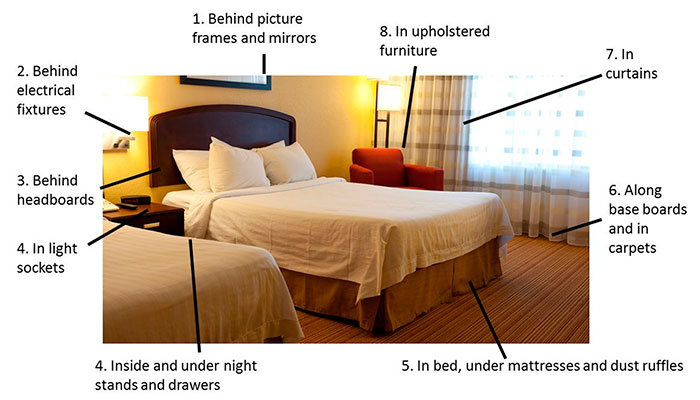
Complete Bed Bug Treatment Procedure
Wash all clothes, bedding, and linens in hot water with detergent. If possible, add Clorox along with soap. Dry items on the highest heat setting to kill any bugs or eggs.
Vacuum your entire home, paying special attention to carpets, furniture frames, and seams. Dismantle furniture if possible before vacuuming to reach hidden areas.
Use a steamer on your mattress, box spring, cushions, and furniture. Heat treatment works well alongside powder application.
Pull beds, shelves, dressers, and other furniture away from walls to allow better access for treatment.
Apply powder to all potential hiding places using the techniques described above. Reapply as directed on the product label.
Bed bugs prefer warm places and often hide in furniture, bedding, carpets, and clothing. They’re frequently found in mattress crevices near the edge of the bed, allowing them to quickly attack their prey in the dark.
Frequently Asked Questions About Bed Bug Powder
How does bed bug powder work?
Bed bug powders work through two primary mechanisms: desiccation and toxicity. Desiccating powders like diatomaceous earth and silica gel work by abrading the waxy protective layer on the bed bug’s exoskeleton, causing them to dehydrate and die. Chemical powders containing ingredients like deltamethrin or cyfluthrin attack the insect’s nervous system. For maximum effectiveness, bed bug powders should be applied in a thin, even layer in cracks, crevices, and other areas where bed bugs travel and hide.
Is diatomaceous earth effective against bed bugs?
Yes, diatomaceous earth (DE) is effective against bed bugs when properly applied. The microscopic sharp edges of food-grade DE lacerate the bed bug’s exoskeleton, causing them to lose moisture and eventually die of dehydration. This process typically takes 7-17 days, making DE a slower but reliable solution. Bed bugs cannot develop resistance to DE because it works physically rather than chemically. For best results, apply a thin layer in bed bug traffic areas and hiding spots, and keep the powder dry as moisture reduces its effectiveness.
What’s the difference between food-grade and pool-grade diatomaceous earth?
Food-grade diatomaceous earth contains less than 1% crystalline silica, making it safe for use around humans and pets when properly handled. Pool-grade DE contains much higher levels of crystalline silica (up to 70%) and is treated with high heat, making it more dangerous to inhale and potentially harmful if ingested. For bed bug treatment, always use food-grade DE, which is effective against insects while minimizing health risks. Pool-grade DE should never be used for pest control inside homes as it poses significant respiratory hazards.
How long does it take for bed bug powder to kill bed bugs?
The time it takes for bed bug powder to kill varies by product type. Chemical powders containing deltamethrin or cyfluthrin can kill bed bugs within hours of contact. Natural desiccants like diatomaceous earth or silica gel work more slowly, typically taking 7-17 days to kill bed bugs after exposure as they gradually dehydrate the insects. For severe infestations, complete elimination may take 30+ days with multiple applications. Factors affecting timing include powder type, infestation severity, humidity levels, and whether bugs actually come into contact with the powder.
Where should I apply bed bug powder in my home?
Apply bed bug powder in key areas where bed bugs hide and travel: along baseboards, inside wall voids (accessible through electrical outlets with power disconnected), under and around bed frames, inside box springs, along mattress seams (if using safe products like DE), inside furniture joints and crevices, under carpet edges, behind headboards, and around doorframes. Focus on creating thin barriers across pathways bed bugs use to reach hosts. Avoid applying powder on surfaces where direct skin contact occurs or in areas with air movement that could cause powder to become airborne.
Is bed bug powder safe to use around children and pets?
Safety varies by product type. Natural desiccants like food-grade diatomaceous earth are generally considered safe around children and pets when properly applied, though precautions should still be taken. Chemical powders containing insecticides require careful handling and application according to label instructions. For all powder types, prevent inhalation by wearing a dust mask during application, keep children and pets away during treatment, avoid applying on surfaces that come in direct contact with people or animals, and clean up excess powder in exposed areas once treatment is complete.
Can bed bugs become resistant to powder treatments?
Bed bugs cannot develop resistance to mechanical desiccants like diatomaceous earth and silica gel because these products work physically by damaging the insect’s exoskeleton rather than chemically. However, bed bugs can and have developed resistance to chemical insecticides, including those in powder form containing pyrethroids like deltamethrin. This resistance is well-documented in many urban areas. To combat resistance, pest management professionals recommend using multiple treatment methods simultaneously and alternating between different classes of insecticides if chemical control is necessary.
Should I vacuum before or after applying bed bug powder?
Always vacuum thoroughly before applying bed bug powder to remove live bugs, eggs, and debris that might prevent powder from reaching surfaces effectively. After application, leave the powder undisturbed for at least 5-7 days to allow time for bed bugs to contact it. When it’s time to clean up or reapply, vacuum the existing powder completely before applying fresh product. Use a vacuum with a HEPA filter when cleaning up powder to prevent fine particles from being released back into the air, and dispose of vacuum contents in a sealed plastic bag.
How often should I reapply bed bug powder?
Reapplication frequency depends on the product and infestation severity. For diatomaceous earth and silica-based powders, reapply every 7-10 days for at least 3-4 applications. Chemical powders typically need reapplication every 2-3 weeks according to product labels. Powder should be reapplied immediately if it becomes wet or visibly disturbed. In high-traffic areas, more frequent application may be necessary. Continue treatment for at least 30 days after the last bed bug sighting to ensure all lifecycle stages are targeted, including newly hatched nymphs from previously laid eggs.
Can bed bug powder alone eliminate an entire infestation?
Bed bug powder alone rarely eliminates established infestations completely. While effective as part of an integrated approach, powders have limitations: they only work when bugs contact them directly, may not reach all hiding places, and some work slowly. For comprehensive control, combine powder with other methods such as heat treatment, mattress encasements, interceptor traps, and targeted insecticide sprays. Professional extermination should be considered for severe infestations. The most successful bed bug elimination strategies involve multiple techniques applied consistently over several weeks.
Conclusion: Winning the Battle Against Bed Bugs
Bed bugs represent one of the most persistent and challenging household pests to eliminate. However, with the right powder treatment applied correctly and consistently, you can effectively control and eliminate these nocturnal invaders without the expense of professional extermination services.
After thoroughly reviewing the market’s top options, our research shows that Ortho Home Defense Max stands as the most effective overall choice for most households in 2025. Its powerful deltamethrin formula targets both adult bed bugs and their eggs, while its convenient applicator makes treatment accessible even for first-time users. For those seeking a natural alternative, JT Eaton Bedbug Powder provides excellent long-term protection without harsh chemicals.
Treatment Timeline
Be patient with your treatment. Chemical powders typically show results within 24-48 hours, while natural desiccants may take 1-2 weeks to fully eliminate bed bugs. Most infestations require consistent treatment for 30-60 days to break the reproductive cycle completely.
Prevention Tips
Once you’ve eliminated bed bugs, maintain vigilance by regularly inspecting bedding, using mattress encasements, reducing clutter, and applying preventative powder treatments in key areas every 2-3 months. When traveling, always inspect hotel rooms and keep luggage elevated away from beds and walls.
When to Call Professionals
If your infestation persists after 2-3 months of diligent DIY treatment, spreads to multiple rooms, or if family members continue experiencing bites despite treatment, it’s time to consult professional pest control services. Some severe infestations require specialized equipment and comprehensive approaches beyond what powders alone can provide.
Remember that early intervention is key to preventing these resilient pests from establishing large colonies in your home. The moment you spot signs of bed bugs—rusty spots on bedding, tiny egg casings, or unexplained bite patterns—take immediate action with the appropriate powder treatment for your situation.
By combining thorough application of quality bed bug powder with complementary measures like heat treatment, protective encasements, and regular inspection, you can reclaim your home from these persistent pests and enjoy peaceful, bite-free sleep once again.
Pro Tip: Document your treatment process with photos and notes. This helps track progress and provides valuable information should you need to adjust your approach or consult with professionals later.
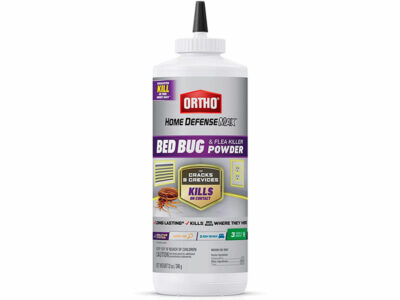
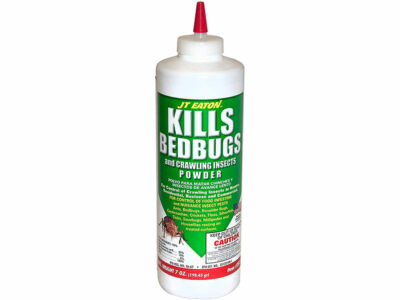
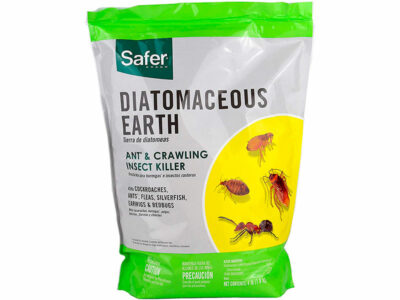
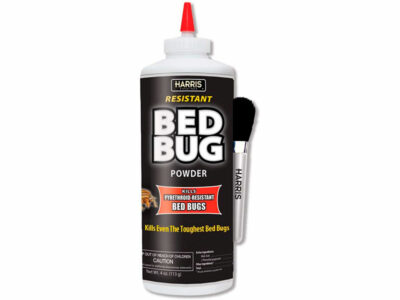
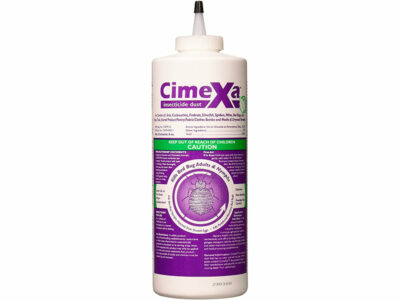
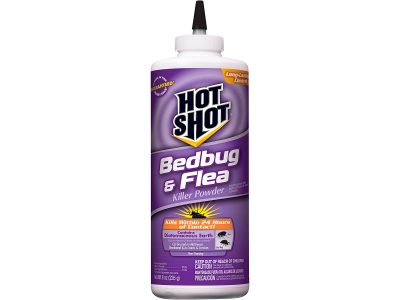
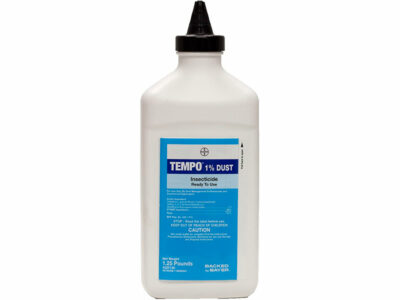
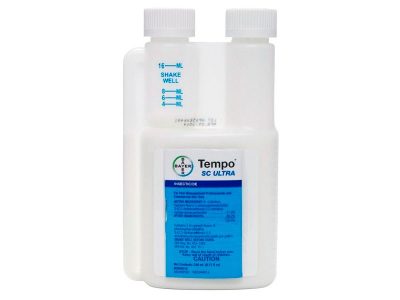
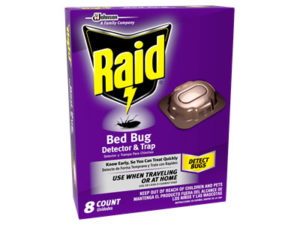
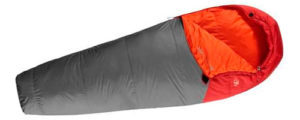

doesn’t silicone dioxide work better by drying moisture from them